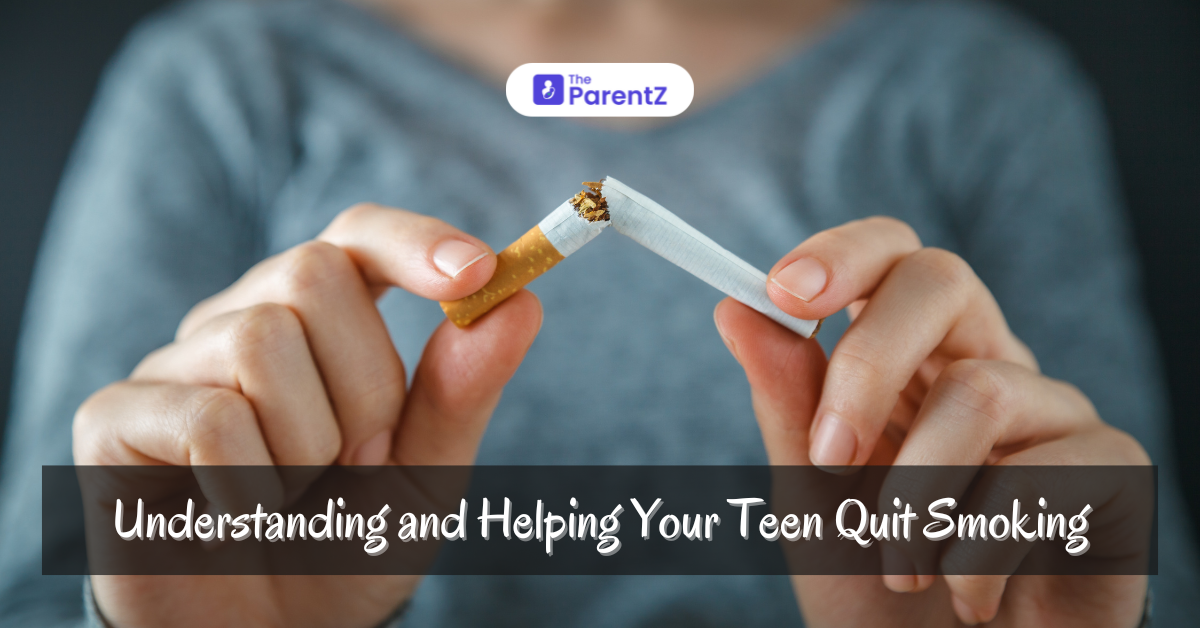Discovering that your teenager smokes can be a devastating shock. It’s an instinct to react with anger or disappointment, but it’s essential to remember that your child is going through a complex phase of life. Before diving into solutions, it’s crucial to understand the underlying reasons behind this habit and approach the situation with empathy and support.
Understanding Teen Smoking
Smoking is a significant health risk for teenagers, with immediate and long-term effects that can be devastating. Immediate effects include:
- Poor physical fitness.
- Increased risk of respiratory illnesses.
- Negative effects on lung growth and function.
Long-term health effects often include an increased risk of heart disease, stroke, lung damage, and many types of cancer, leading to a shortened lifespan.
Psychological Impact
Smoking can also have a profound psychological impact on teenagers. It can lead to irritability, restlessness, anxiety, depression, and difficulty concentrating. These effects are often exacerbated by the social and environmental factors that influence a teenager’s decision to start smoking.
For instance, peer and family influence, including lack of parental support or involvement, can play a significant role in a teenager’s decision to smoke. Additionally, mental health conditions, poor self-image, and negative life experiences can contribute to the likelihood of a teenager starting to smoke.
Tips to Help Your Child Quit
- Have Calm and Open Conversations: Realize that your emotions might be intense, but staying calm and having open conversations with your child is crucial. Avoid going into the conversation angry or frustrated. Instead, take the time to find your calm and let your child guide the conversation. Ask open-ended questions like “How long have you been smoking?” or “How does smoking make you feel?” to understand their perspective.
- Be Supportive: Remember that no one is in charge except for the person trying to quit, even if that person is a teenager. While part of this journey, you walk alongside your child, not just dragging them along. Praise your child for trying to quit, whether they have gone a month, a week, or just a day without smoking. Do not look at relapses as failures but as practice runs for the real thing.
- Know Your Family’s History with Addiction: If your family has a history of addiction, consider sharing that information with your child. Addiction is often a family disease, and understanding any underlying genetic factors can be helpful now and throughout your child’s life. It might be scary to open up about your past, but knowing your family medical history can help your child make informed decisions and possibly understand their addiction better.
- Create a Quit Plan: Help your child create a quit plan to track their progress and manage withdrawal symptoms. This can include setting specific goals, identifying triggers, and finding ways to cope with cravings.
Things to Avoid
- Avoid Punishment: Punishment can create a sense of resentment and make the situation worse. Instead, focus on having open and honest conversations with your child.
- Avoid Lectures: Avoid turning the conversation into a lecture. Let your child guide the conversation and avoid interrupting them, even if you disagree with what they are saying.
- Avoid Blame: Do not play the blame game. Instead, focus on understanding your child’s perspective and the reasons behind their decision to smoke. This way can help build trust and create a supportive environment for your child to open up about their struggles.
- Avoid Being Overly Critical: Criticism can make your child defensive and less likely to open up. Instead, focus on being supportive and understanding. Acknowledge that they are trying to quit and praise them for their efforts, even if they relapse.
Conclusion
As parents, it is essential to understand that smoking is a severe health risk for teenagers and that it can have long-term consequences. However, it is also crucial to approach this situation with empathy and understanding.








